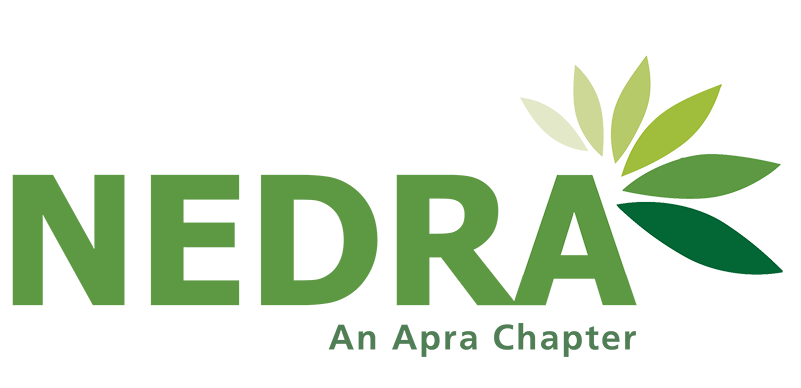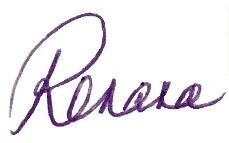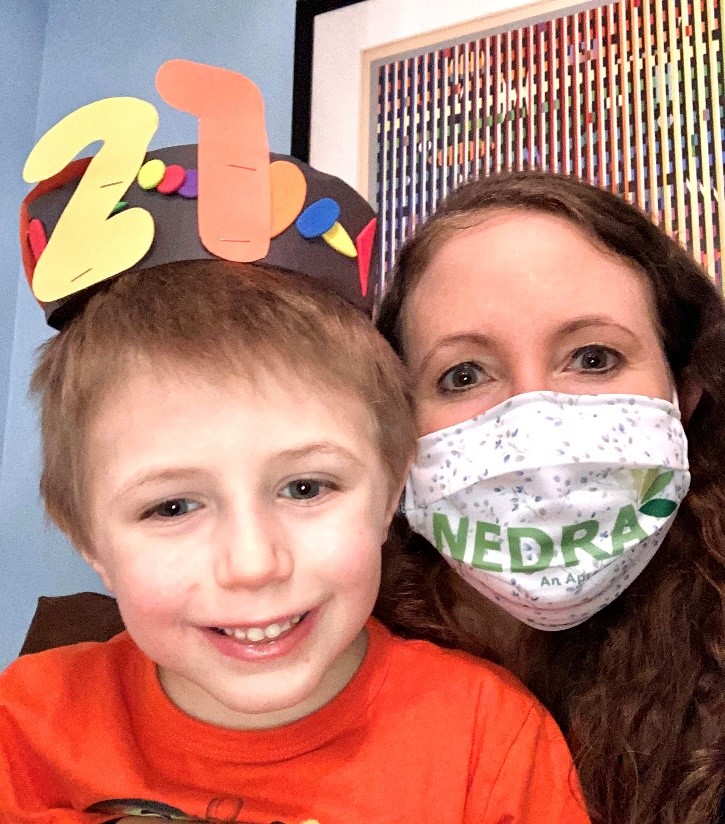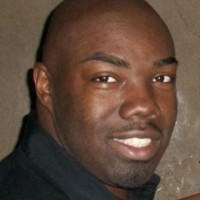NEDRA NEWS FEBRUARY 2021
Greetings from NEDRA's President, Renana Kehoe Dear NEDRA Community, Happy 2021! The new year invites us to reflect on the past and think about the future year ahead. We are so thankful to have had you join us for the ups and downs of 2020. We started the year with six in-person programs and a webinar in early March, which was the third ever webinar in our programming history (how cute is that?). We, of course, shifted to virtual programming shortly after and by the end of the year, we were able to offer a total of 48 programs including think tanks, presentations, bootcamps, workshops, and VINOs (Very Informal Networking Opportunities) – one of which included our first ever virtual trivia night! We ended the year with exciting news announcing our spring conference dates and two new scholarships: the NEDRA DEI (Diversity, Equity, Inclusion) Scholarship and the NEDRA Community Scholarship. As we look ahead, we are thrilled to be working on new and exciting programming, the virtual conference (for which the call for session proposals is now open), and more opportunities to connect and engage within our prospect development community. Lastly, a huge thanks to our incredibly hard-working board and our many dedicated committee volunteers, without whom none of this would be possible. Cheers to a healthy and happy 2021! Warmly,
Renana Kehoe NEDRA Board President Phil Harden, Connecticut College How did you enter the prospect development field? I was required to complete an internship at my alma mater, the University of Florida. I chose its alumni association and met fantastic professionals in every area of advancement. I was most drawn to the prospect research team after hearing about an APRA Florida webinar the team just finished. I was sold and became an APRA FL member shortly after, which led to my first position as a research analyst at Florida State University. Why did you decide to join the NEDRA board? I had heard great things about NEDRA while I was in Florida and found the programming impressive. As a recent transplant to Connecticut, I knew it was necessary to find my footing in this new professional landscape. I could not think of a better decision than to get involved in the NEDRA community to find friendship and mentorship, as well as the best restaurant and excursion recommendations. It's early in your board term, but how has joining the NEDRA board impacted you? The NEDRA board has allowed me to become familiar with the prospect development community in New England. I am still new to the area after nearly two years and there are many talented professionals in this area that I have come to admire. Also, I am glad to be a part of a group of dynamic volunteers that are passionate about the field and committed to being advocates within the development. I continue to have an appreciation for the amount of work professional associations do for its members, and particularly NEDRA. So, you work at Connecticut College and you are in research and prospect management - would you share a couple prospect development tips?
Tell us about your typical weekend! My typical weekend includes catching up on TV shows that I missed during the week. My latest obsession is A Discovery of Witches. I also watch a ton of Netflix shows and movies. What is your dream vacation if you had limitless time and money? A summer in the U.K. would be wonderful. I love the moderate summer climate and with so much history there, there is a great deal to see and experience. RECENT PROSPECT DEVELOPMENT RETIREES NEDRA congratulates two community members who recently retired from their Prospect Development roles. We asked Shelley Kooris and Karen Rowe questions regarding their career and what it was like retiring in the midst of a pandemic. Shelley Kooris - Beth Israel Deaconess Medical Center 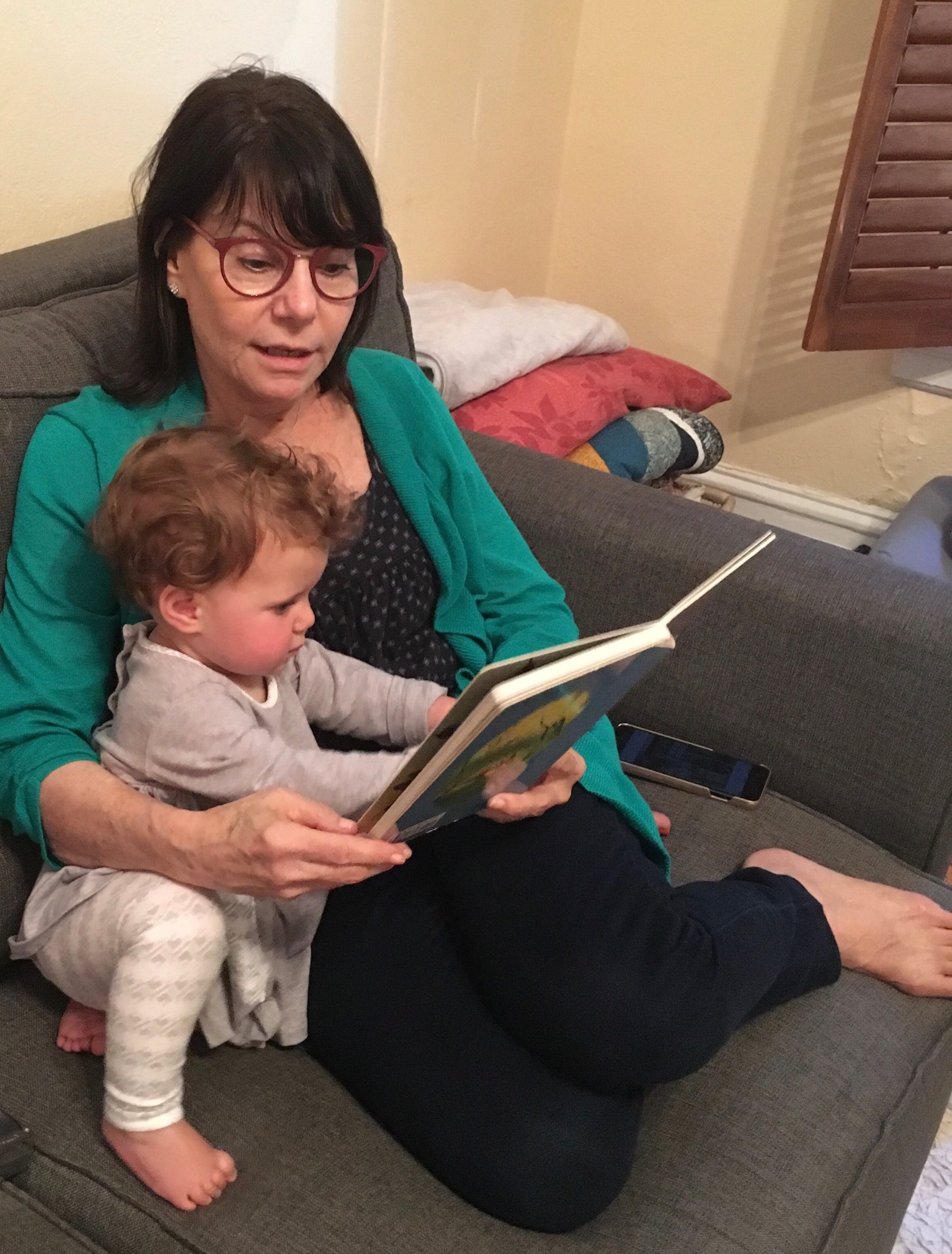
What was your last role before retirement?
What was your career progression? As I began in the workforce, I had no knowledge of the field of Prospect Research. As a little girl my grown-up fantasies did not include "Prospect Researcher." My dreams were more along the lines of dancer or actress. However, reality reigns and one of my first “real” jobs was as a Staff Assistant III at the Harvard Business School. I secured this interview with the help of a dear theater friend who was working at HBS while her husband was getting his MBA. My job was in a department called Corporate Relations Research which supported HBS’s executive education programs. To my complete surprise I was offered a promotion to manage our small group after about six months’ time. It was during this period that I got to know Alicia Connors, who was heading up the Development Research function. When she got recruited by Radcliffe College to establish a Prospect Research Office, she asked me to join her. It was at Radcliffe that I learned how to be a Prospect Researcher. I discovered that I really enjoyed the investigative nature of the job, the synthesizing of information, and the writing. Being at Radcliffe meant that we had access to all the incredible resources at UDO, and learning about the stories of Radcliffe alumnae, especially in the earlier classes, was fascinating. From there I went to direct Prospect Research at the Boston Symphony, Combined Jewish Philanthropies, and finally Beth Israel Deaconess Medical Center. What are your feelings about retiring during the pandemic? Retiring during the pandemic has been challenging because my activities have been so limited. Fortunately, I have a good backyard for social distance gatherings, and have a group of friends and family who gather here and meet on Zoom. The hardest part has been not being able to travel to California to see my granddaughters. Oddly, it was the pandemic that helped me realize that I was ready to retire. About one-third of the BID Development Department was furloughed over the spring and summer, including me. My furlough provided me with a freedom from the stress of deadlines, work related conflicts, and tech issues related to remote work. And the beautiful weather allowed me to do lots of gardening, hiking and other outdoors activities. Those few weeks felt like a rehearsal for retirement, and the rehearsal went really well! Looking back at your career would you have done anything differently? Honestly, I can’t think of anything I would do differently. Perhaps I would have retired a little bit earlier! What advice would you give to newcomers to the field? Stay in touch and on good terms with all your current and past colleagues. After my first job at HBS, I was lucky enough to be recruited for every subsequent position. I had developed a close network of colleagues and friends, and this consistently led to new opportunities. I was also able to recruit the fabulous Meg Cushing to come with me to BID. We had formerly worked together at CJP. Develop close working relationships with your colleagues in Major and Principal Gifts and make sure you always have a place at their table. There will always be someone with whom you have some sort of conflict. Try to focus on the issues surrounding the work and not the personalities. What has NEDRA provided for you during your career? I haven’t been very involved with NEDRA recently, but have always valued the friendships I’ve made through NEDRA. It’s been wonderful meeting up with familiar faces over the years, and of course the content of both the annual conferences and smaller groups has been invaluable. What’s the best thing (so far) about retirement? Doing whatever I want – whenever I want. Karen Rowe - Harvard University 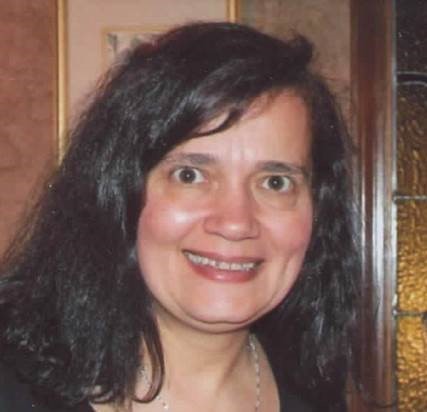
What was your last role before retirement?
What was your career progression? Upon graduating from Bates College with a degree in English literature, I completed a publishing course at the University of Denver and began working at Little, Brown and Company, a former Boston publisher. After several years in entry-level positions there, and at a couple of other publishers, I pursued a career in graphic design—first working at a small art studio, and then at several larger firms, all in the Boston area. I later started my own web design business with a colleague. In the early 2000s, during an economic downturn, I took a part-time position at Harvard’s Graduate School of Design (GSD). As a staff assistant at the GSD, I did basic prospect research for my manager, the head of external relations. I found that I loved development research, so began cultivating relationships with the research department at Harvard’s University Development Office (UDO). Eventually, in late 2006, I was hired as a full-time research analyst at the UDO, and remained there until I retired. What are your feelings about retiring during the pandemic? I had been thinking about retirement for a while and feel that the pandemic—by forcing me to work from home for nearly a year—created a segue between office life and home life. In that sense, the transition to full retirement was not as abrupt as it might otherwise have been. Looking back at your career would you have done anything differently? I would have started working in research earlier! I have found the work to be so interesting and fulfilling. What advice would you give to newcomers to the field? A number of things come to mind: finding a mentor; knowing your organization’s priorities; establishing good relationships with your fundraisers; keeping on top of the news; and attending NEDRA meetings, workshops, and social events. Always use reliable sources; cross-check your information against other reliable sources; and, if possible, cite your sources. (Even if fairly recent research on an individual or organization exists, do not assume that it is current or correct without doing your own fact-checking.) What has NEDRA provided for you during your career? NEDRA has been an invaluable resource to me, both in terms of learning about the latest techniques in development research and prospect management, and in exchanging information with others in the same field. I have found NEDRA’s annual conferences particularly helpful, but have also enjoyed its other programming, including its networking events. What’s the best thing (so far) about retirement? A flexible schedule, which includes more walks, more time with my dog, and being able to sleep later! DIVERSITY, EQUITY, AND INCLUSION (DEI) SCHOLARSHIP We interviewed our DEI Scholarship subcommittee for more background on the new Diversity, Equity, and Inclusion (DEI) Scholarship. Here’s what they had to say. Why has NEDRA created the Diversity, Equity, and Inclusion (DEI) Scholarship? What does the DEI Scholarship mean to you? Fundraising in general has a history and reputation of being exclusionary and the prospect development subfield is no exception. Offering DEI scholarships is one of many positive steps NEDRA can take towards welcoming researchers from underrepresented groups. The subcommittee members are grateful to have shaped this scholarship and are excited to see how it benefits individuals in our field. Why is the scholarship offered to candidates both new to prospect development or experienced in the field/other development fields? Underrepresented candidates face unique challenges both when trying to break into a new career and also when seeking to advance within their field. For this reason, we decided it was important to offer DEI scholarships to individuals with a range of experience. How do you think the DEI Scholarship will positively impact NEDRA's ability to support its community and strengthen the work that we do? Organizations are stronger and more effective when diverse perspectives are present and encouraged. NEDRA is eager to listen to its community and learn how best to serve its membership, which it values very much. Times change and NEDRA is growing. We believe in staying relevant to the issues that confront the professionals in our field. In 2021, the NEDRA DEI Scholarship will be awarded to three recipients. Candidates may be new to prospect development or have experience in the field. Candidates with experience in other development fields who would like to learn more about prospect research are also welcome to apply. NEDRA membership is not required. The application deadline for the 2021 Conference is Friday, February 19, 2021. Applications for Research Basics Bootcamp are accepted year-round. For more information and to apply visit www.nedra.org/DEI-Scholarship. Questions? Contact scholarships@nedra.org. A Special Thanks to Our NEDRA Committee Volunteers (July 2020-present) This past year has certainly been unique in many ways. NEDRA is extremely appreciative of all of our volunteers who are serving on committees throughout these challenging months. Our organization perseveres due to the new and familiar faces who have dedicated their time and efforts toward this community. We cannot thank you enough for all that you do for NEDRA.
UPCOMING PROGRAMS Data Analytics for Prospect Researchers - Tuesday, February 9, 1 - 2:30 p.m. EST Think Tank: Ellucian Advance - Thursday, February 25, 11 a.m. - 12 p.m. EST International Research: An Exploration of China - Thursday, March 4, 2 - 3:30 p.m. EST Research Basics Bootcamp - Thursday, March 11, 9 a.m. - 12:30 p.m.; Friday, March 12, 12:30 - 4:00 p.m. EST INDUSTRY NEWS Major Gift Fundraising During COVID-19: Trends and Takeaways |
